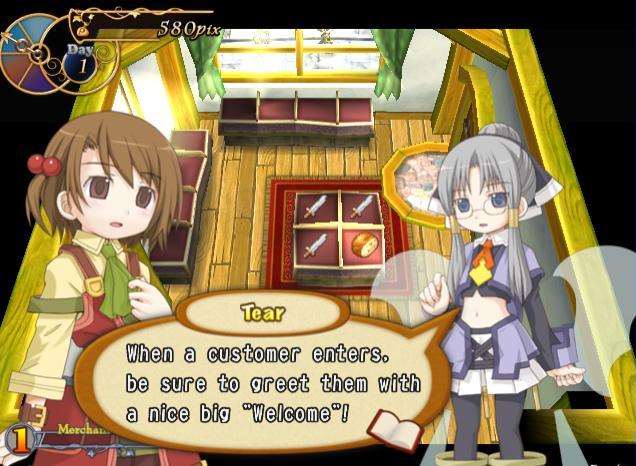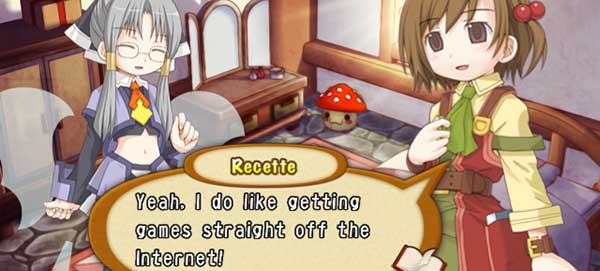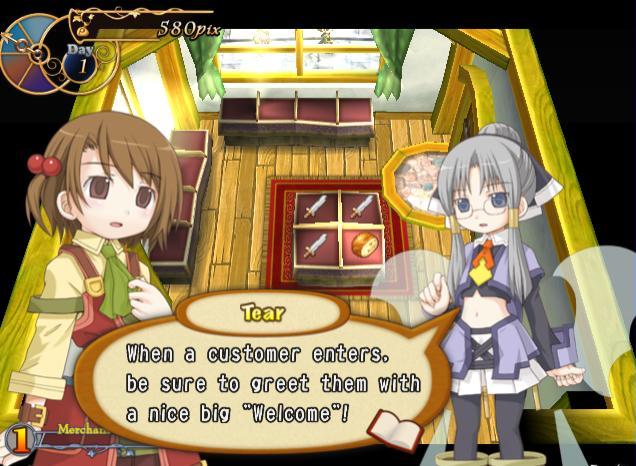
What does it take to get cutely drawn, anime-inspired characters on the front page of Bitmob? Hopefully, the hype for the much anticipated Halo: Reach and Dead Rising 2 won't overshadow the localized release of the PC game Recettear: An Item Shop's Tale, an inspiring victory for the Japanese independent games market.
Recettear's demo is currently making the rounds on high-traffic anime message boards, with players praising its addicting gameplay that deviates from standard JRPG norms. In the game, you assume the role of Recette, an unfortunate youth who must pay an overwhelming debt left by her father after he skipped town to go on an epic adventure. To help her, Tear the debt-collecting fairy guides Recette in creating an item shop to help generate the capital needed make the hefty minimum weekly payments.
Traditional Japanese role-playing games require frequent trips to nearby dungeons to bulk up on experience and useful item drops. Recettear, however, employs dungeons to find useful items to sell for 100 percent profit. Outside the dungeons, the game revolves around selling these items and bartering with locals to make deals.
But even more noteworthy than the game's cute character designs, witty dialogue, and refreshing gameplay is the route Recettear took to break into the American market.
The game, developed by the small Japanese studio EasyGameStation, first debuted in 2007 during Comiket 73, an enormous conference of grassroots circles selling fan-made comics, games, and other otaku items of interest. In 2009, the licensing company Carpe Fulgur acquired the rights to localize it and digitally distribute it through Steam and other services.
This is a Cinderella story for the independent community in Japan. Traditionally, games that come out of Comiket are sold stateside in Japanese specialty stores with jacked-up prices or distributed legally (and often illegally) over the Internet.

Fan translations for these games often emerge years after the game's initial release — if they get any translation at all. One of the best examples comes from critically acclaimed visual horror novel Saya no Uta. Despite being praised as one of the most gripping and intelligent visual novels released, the 5-hour long, dialogue-heavy game didn't see an English patch until six years after it came out.
If Recettear does turn a profit, it will open a lot of opportunities for the Japanese independent games community. Burgeoning companies like Carpe Fulgur will have an entire market to discover and translate new IPs. Members of the fan-translation community may find new employment opportunities to earn money for their work. And fans will be able to enjoy these doujin games quicker than ever before with professional-level translations.
While Western indie games like Alien Hominid, Braid, and Limbo earn deserved respect from press and gamers, the Japanese independent games industry remains an entire untapped foreign market which contains an unimaginable arsenal of exotic charm and fun. The entire games industry loses if these games continue to go undiscovered.



